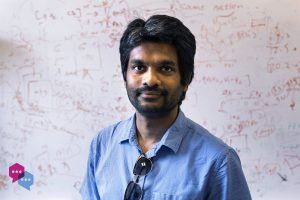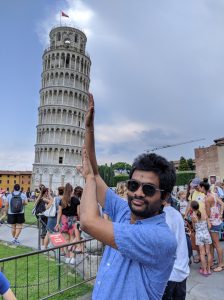Mohit Bansal is the John R. & Louise S. Parker Associate Professor in the Department of Computer Science within the UNC College of Arts & Sciences and a recipient of the 2020 Hettleman Award for Artistic and Scholarly Achievement. Through natural language processing and machine learning, he develops programs that help artificial intelligence technology understand and use human-like language.

Q: When you were a child, what was your response to this question: “What do you want to be when you grow up?”
A: Some strange combination of an astronaut and comic book or graphic novel artist because of my fascination with space, aliens, and spaceships — and with writing intricate fictional stories and drawing sketches of them.

Q: Share the pivotal moment in your life that helped you choose your field of study.
A: Interesting people and projects at my undergraduate university in India and my summer internship at Cornell University got me fascinated in natural language processing systems. NLP systems can automatically summarize long documents, generate responses to a conversation, or answer questions about images and videos. I was especially drawn to their immense potential for social impact through human-robot collaboration, disability assistance, intelligent tutoring, and hate speech and fake news detection.
Q: Tell us about a time you encountered a tricky problem. How did you handle it and what did you learn from it?
A: In my field, we develop artificial intelligence (AI) and machine learning models that make predictions or classification labels with far-reaching and high-stakes applications in the real world, like autonomous vehicles and fake news identification. But one major problem with them is that we may not always know whether the model reached a certain conclusion for the right reason or by exploiting a wrong, biased reason. So, to make these AI models more trustworthy, we and other computer scientists have worked on developing several methods that force the model to explain its inner reasoning through visualizations, structured graphs and proofs, modular networks, and verbal language-based explanations.
Q: Describe your research in 5 words.
A: AI that you can trust.
Q: What are your passions outside of research?
A: I love traveling and roaming among scenic views, cooking and eating diverse cuisines, and sleeping a lot.
See Bansal speak more about his research during the Hettleman Talks during 2020 University Research Week.
By endeavors
